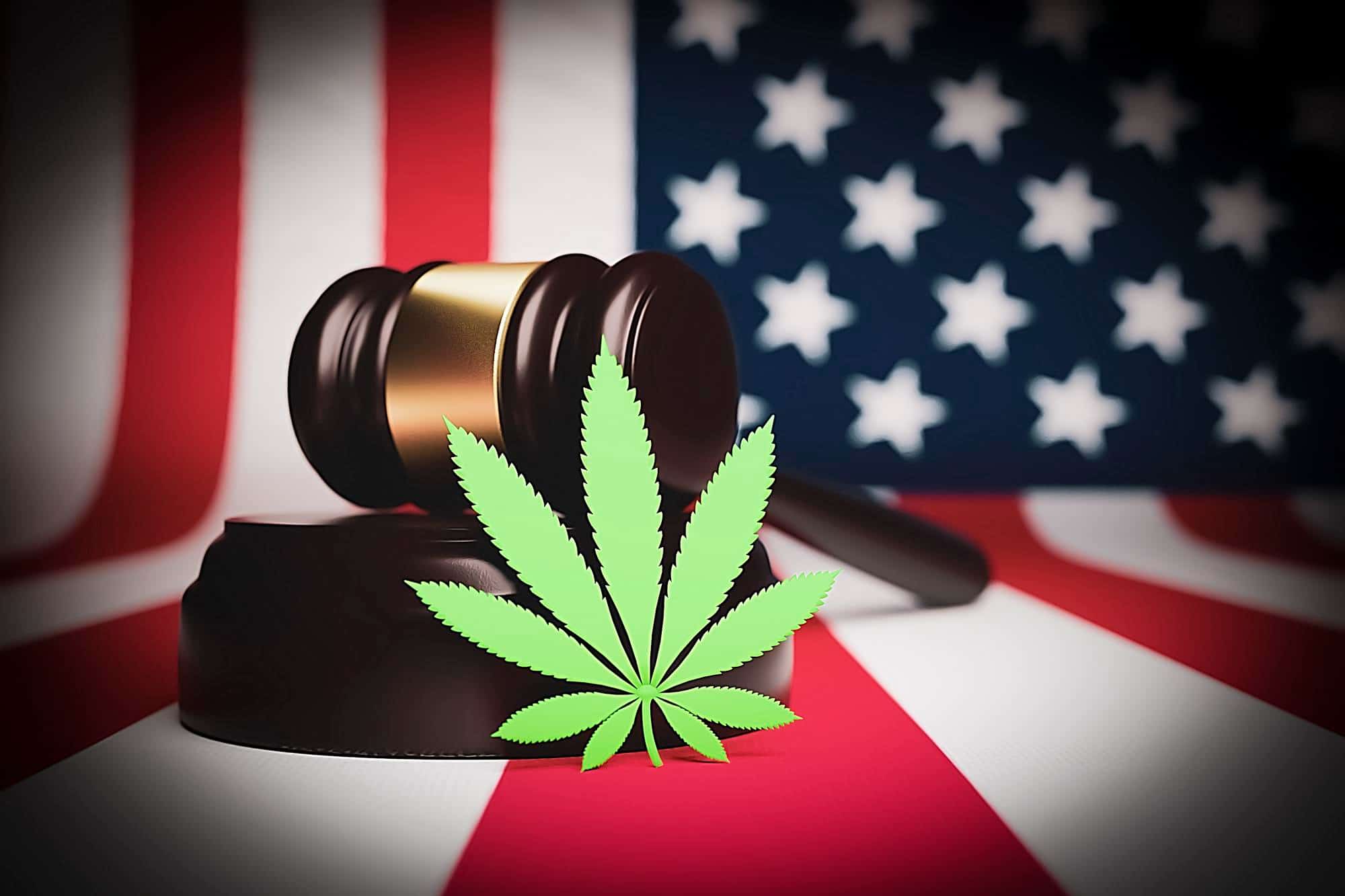Biden to Pardon Federal Offenders & Review Marijuana Scheduling
by Haley Mills · October 14, 2022
Surprising to many, President Biden announced that he is taking significant steps toward changing federal marijuana laws.

Surprising to many, President Biden announced last Thursday that he is taking significant steps toward changing federal marijuana laws and providing relief to drug war victims and their families. This unexpected announcement comes approximately one month ahead of the November election.
President Joe Biden stated that he would pardon all federal prisoners locked up for simple marijuana possession offenses. The president is also initiating an administrative review of federal marijuana scheduling. This move is particularly shocking because, as a senator, Biden fully supported drug-related incarceration, and his current administration has openly punished employees for marijuana use.
Many cannabis advocates question whether the pre-election statements will truly accomplish much for legalization efforts. Let’s examine President Biden’s recent executive actions and how they may influence America’s multi-billion-dollar cannabis industry.
President Biden’s Statement- Oct. 6, 2022
“No one should be in jail just for using or possessing marijuana. Sending people to prison for possessing marijuana has upended too many lives and incarcerated people for conduct that many states no longer prohibited. Criminal records for marijuana possession have also imposed needless barriers to employment, housing, and educational opportunities. Black and brown people have been disproportionately arrested, prosecuted, and convicted.
First, I am announcing a pardon of all prior Federal offenses of simple possession of marijuana. I have directed the Attorney General to develop an administrative process for issuing certificates of pardon to eligible individuals. Thousands of people have prior Federal convictions for marijuana possession and may be denied employment, housing, or educational opportunities as a result.
Second, I am urging all Governors to do the same concerning state offenses. Just as no one should be in a Federal prison solely due to the possession of marijuana, no one should be in a local jail or state prison for that reason, either.
Third, I am asking the Secretary of Health and Human Services and the Attorney General to initiate the administrative process to review expeditiously how marijuana is scheduled under federal law. Federal law currently classifies marijuana in Schedule I of the Controlled Substances Act, the classification for the most dangerous substances.
Finally, even as federal and state regulation of marijuana changes, important limitations on trafficking, marketing, and underage sales should stay in place.”
Federal Marijuana Offenses
The approximate number of people imprisoned for all cannabis offenses as of 2018 is 32,000, according to the Last Prisoner Project.
People with criminal records can face discrimination when accessing housing, employment, or educational opportunities. A pardon leaves their criminal record in place, which could potentially affect all three categories. President Biden has directed Attorney General Garland to develop a process to issue pardons to those who are eligible. However, there is no primary database of federal marijuana offenders so it may be challenging to execute.
Biden’s action will have a negligible effect since the federal government prosecuted relatively few people for marijuana possession. None of the 6,500 people to be pardoned are in prison, and the order excludes convictions of non-citizens.
Biden’s pardon order ultimately makes a tiny dent in undoing the harm caused by decades of marijuana criminalization. But perhaps we shouldn’t ignore the significance of the president of the United States coming out against the criminalization of marijuana possession. This administration has a long way to go, but pardoning people convicted of marijuana possession at the federal level is an essential step in the right direction.
Rescheduling Marijuana
The Justice Department and the U.S. Department of Health and Human Services (HHS) will conduct the scheduling review. If a change is initiated after the inspection, the federal marijuana policy will be updated accordingly, which could mean rescheduling or even removal from scheduling altogether (although unlikely). It’s unknown how long the review will take, but the President has firmly stated that he wants the process expedited.
Biden supports rescheduling to Schedule II, but marijuana advocates have pushed for altogether ending prohibition. The President has made it apparent that he is not attempting to sway the decision; instead, he is simply asking for a review.
The two agencies heading this project are the FDA and the DEA. The FDA will go through the scientific and medical analysis and recommend scheduling to the DEA. The determination falls on three main factors: current medical use, abuse potential, and addictive qualities of the drug. While the DEA will typically approve the FDA’s decision, the agency has the power to overrule the recommendation in certain situations.
Potential Industry Impacts
The current scheduling of marijuana in the Controlled Substances Act directly conflicts with the thirty-seven states that approved the medical use of cannabis and the nineteen states that allow recreational use. As a result of this conflict between Federal and State governments, the cannabis industry has been plagued by banking restrictions, strict taxation requirements, medical research limitations, and risk of criminal enforcement.
Re-classification would be the first step towards removing barriers that have always afflicted the marijuana industry. Congressional leaders are calling for the passage of the SAFE Banking Act, prohibiting federal banking regulators from penalizing institutions for providing banking services to canna-businesses. If marijuana becomes de-classified, the threat of federal prosecution would be eliminated and would likely make banking partners easier to find.
Will this lead to decriminalization or legalization?
There’s no way of knowing for sure; however, this may help destigmatize marijuana and allow more areas the ability to access recreational and medical marijuana. While the President’s order does not decriminalize or legalize cannabis, it does offer the FDA and DEA an opportunity to deschedule and remove the penalties for simple possession.
Final Thoughts
President Biden’s announcement may be lackluster to cannabis advocates fighting daily for justice, but it’s a solid step toward decriminalization and legalization of marijuana for adult Americans. The pardons affect a small percentage of those affected by the war on drugs, but de-scheduling marijuana would be a game changer. Check back with Leafy Mate & Leafy DOC for more on the federal marijuana scheduling decision as we near an intense mid-term election.
Last Updated: August 8, 2024
Get Approved for Your Medical Marijuana Card in Minutes!

Get Your Medical Card
Connect with a licensed physician online in minutes

Like This Article?
Share with your friends
Table of Contents
Keep Reading
-
4 Steps to Get Your RI Medical Marijuanas Card Online
Easily apply for your RI medical marijuanas card online with our step-by-step guide.
-
Fighting Inflammation: How The Endocannabinoid System Plays A Role
Unlock the power of cannabinoids to fight inflammation naturally! Learn how the endocannabinoid system plays a vital role in soothing your body. Click now for a game-changing solution to combat inflammation.
-
Everything You Need To Know About The Last Prisoner Project
Unlock justice and freedom for the incarcerated with the Last Prisoner Project. Learn how this groundbreaking organization fights for change today! Click to join the movement.



